Sea Glass Home - Sea Glass Colors - Blue Sea Glass
Blue Sea Glass
What makes blue glass blue?
Most of the glass we find on the beach comes from what we use in our daily lives. The largest percentage of glass is produced as bottles and jars, flat glass for windows, or for drinking glasses.
Generally speaking, all glass is made from sand. The glass we find on the beach is, so to speak, returning to it's natural home.
Glass is 100% recyclable, and us "seaglassers" are doing our part to recycle it. You bet!
Here's How Clear Glass Becomes Blue Glass
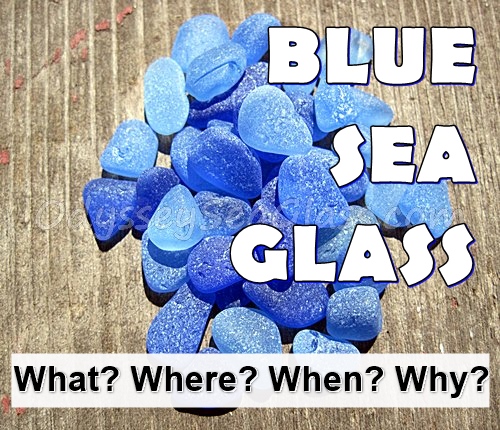
It takes a very, very hot temperature to melt sand into glass, so normally chemicals and minerals are added to reduce the melting temperature. Minerals are also added to strengthen the glass.
Glass made from sand that has some iron in it (most sand does have some) gives a greenish color to the glass. However, commercial glass production removes the iron and glass is normally colorless.
Colors such as blue, red, green, brown, orange, and yellow are produced by adding certain chemicals and/or minerals.
| COLOR | PRIMARY MINERAL | |
 |
Bluish-green (beer and wine bottles) | Iron |
 |
Blue | Cobalt |
 |
Turquoise | Copper oxide |
*See full chart of glass color composition
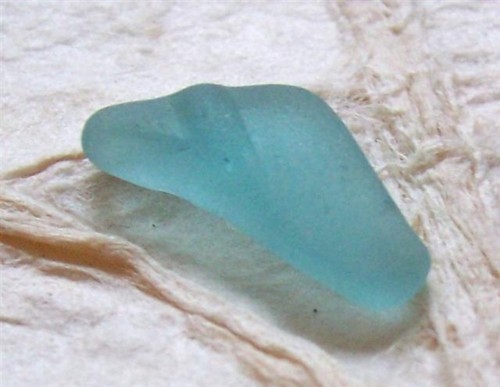
California Coast Cyan Blue Sea Glass
Actually, this sea glass is somewhere between blue and green. It's an
equal mix of both, a color known as cyan. Is it turquoise? Perhaps.
The word turquoise (from the French word for Turkish)comes from a
blue/green mineral of that name. However, turquoise leans slightly
towards green.
It is accurate to say
that it is cyan,
though, and because cyan was
formerly known as "cyan blue," we are putting it here on the blue page.
Our two
grandaughters, Arianna and
Kiley, found this very nice
medium cyan or "turquoise" sea glass on La Selva beach near Santa Cruz,
California.
Although the beach is
very sandy where they live, there are bluffs all along the beach that
erode a little every year and so adding whatever glass shards may have
been discarded on the tops of the bluffs in past years.
So, although the kids are
recycling the old "trash" that they pick up on the shore, the beach is
also being "fed" fresh shards that should become true collectible beach
glass in future years, especially if the sea level rises a few inches
over time.

Blue shards of beach glass come in many hues and intensities, some of which are more familiar in beach glass (from old glass) than others.
The piece shown above is a remarkably-refreshing cyan or "cyan blue" color.
To identify the particular hue of your sea glass, please see the sea glass color chart.
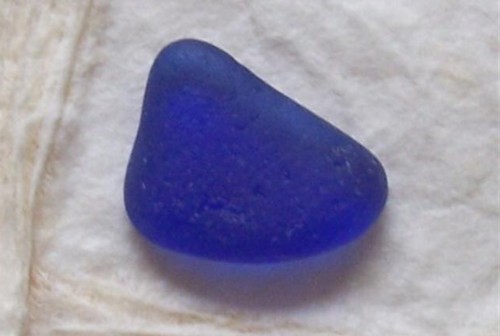
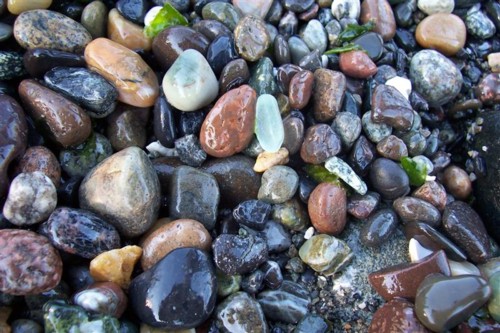
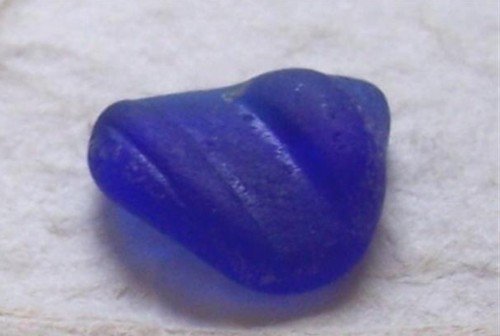
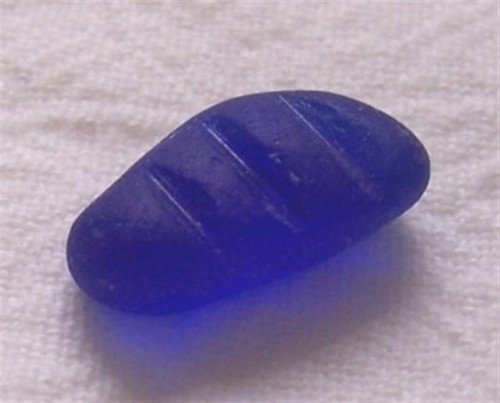
Pugent Sound Cobalt Blue
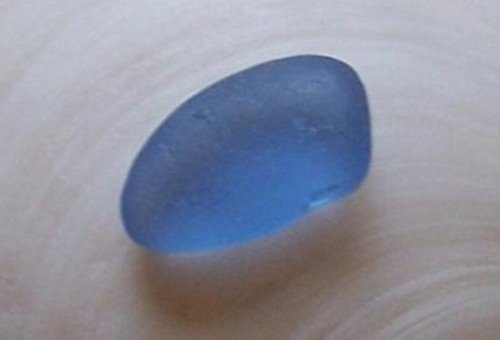
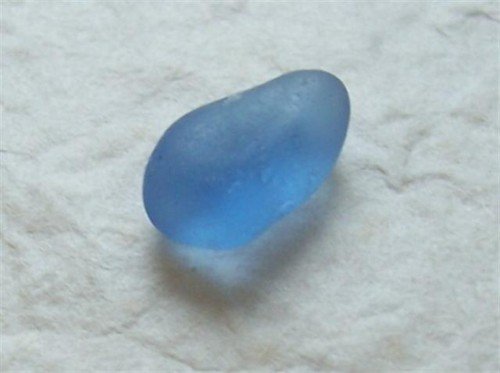
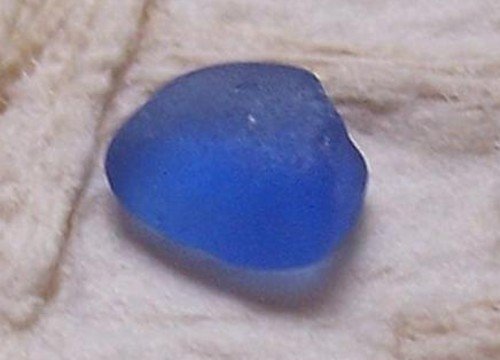

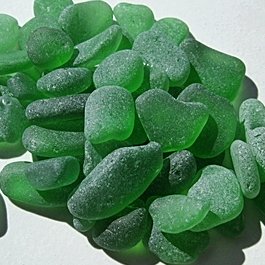
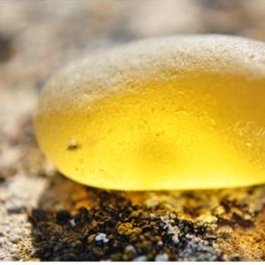
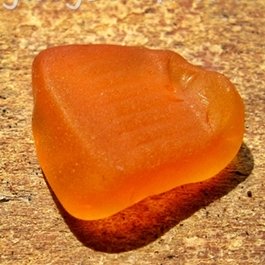
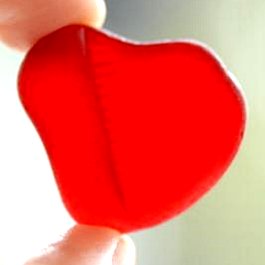
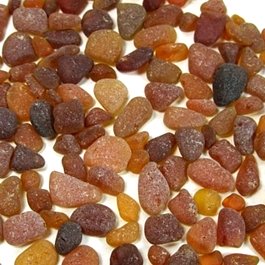
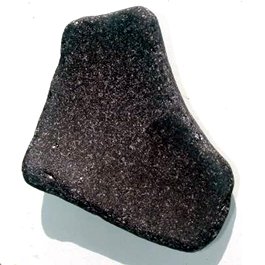
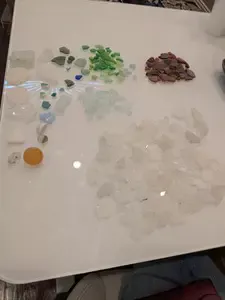
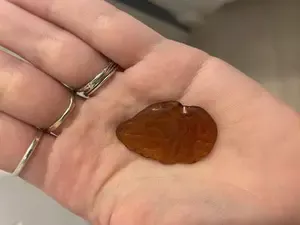
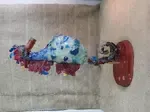
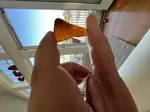
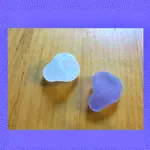
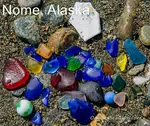

Comments!
We love receiving your comments, but please read the notes below before posting. Thank you!NOTES:
All comments are moderated. If you leave the page you won't see your comment until it is approved.
Select the "Post to Facebook" check box to be notified on FB when a reply has been posted.
If you scan the previous comments you may find an answer to your question. Click the "View X more" link at the bottom (if visible) to see all comments.
Photos - If you would like to include a photo, please use our Photo Forums.
Questions - If you have a question, it may already be answered. Please tap or click here to search of our site first.